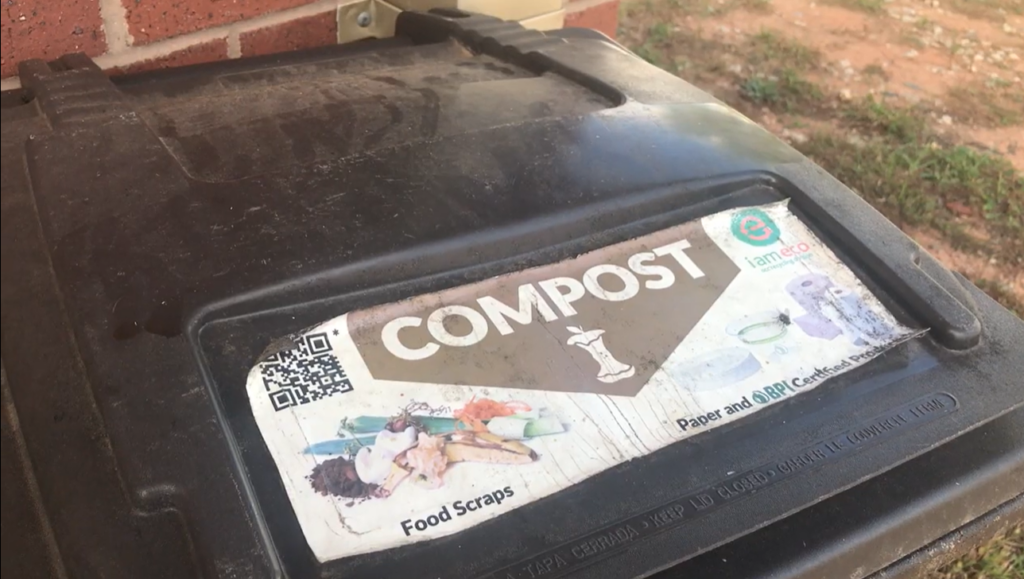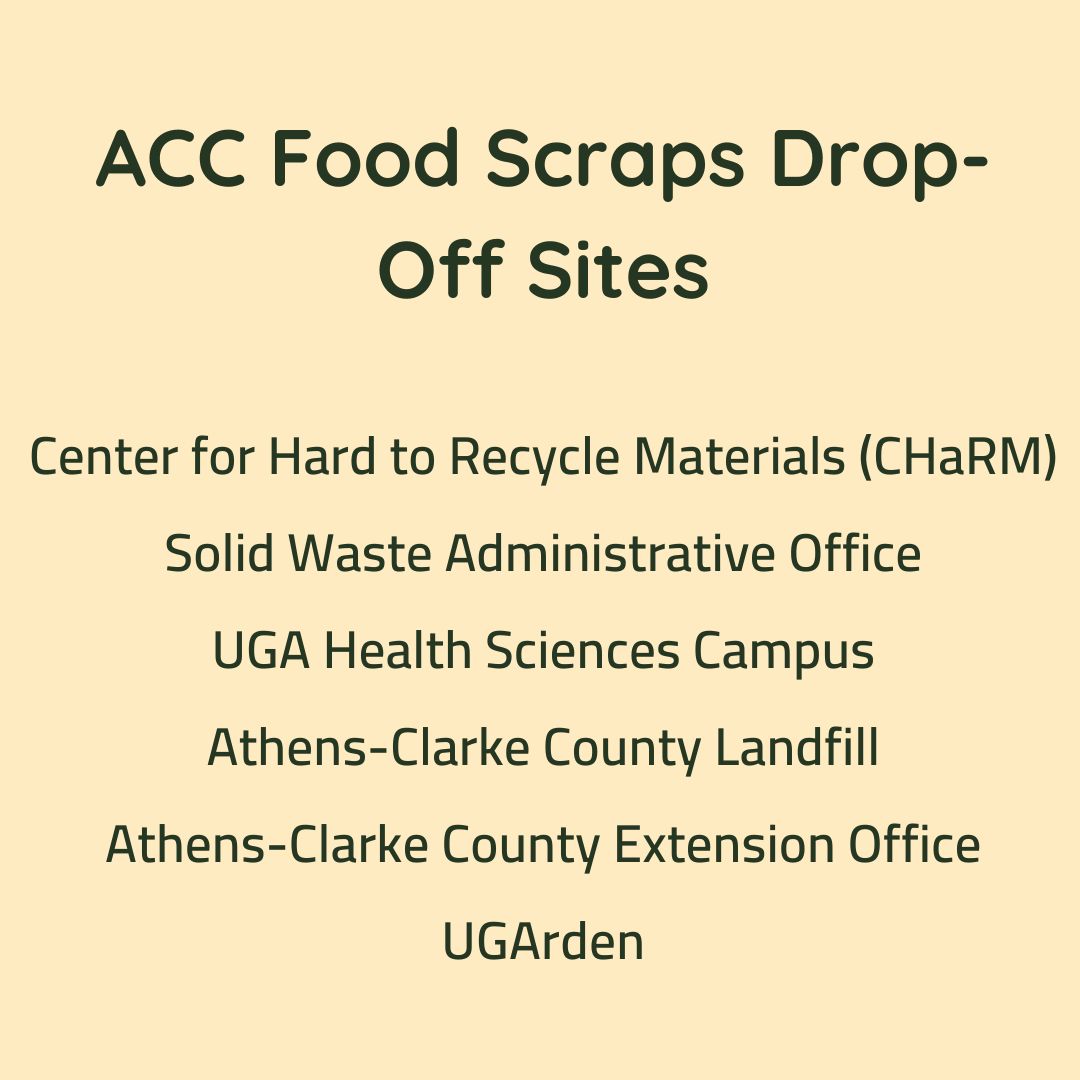University of Georgia students might be familiar with the UGA Campus Compost Program which collects food scraps from multiple bins around campus.
The Athens-Clarke County Solid Waste Department hosts similar composting programs, including food scraps collection for businesses and six drop-off sites for composting around the county.
Reducing Food Waste
Local Athens restaurant The National is one of the businesses that uses the Food Scraps Collection Program. Two 60-gallon compost bins in their kitchen collect compostable materials for Solid Waste Department workers to pick up.
“We are able to compost bones from meat, which is huge,” said Erin Wilson, the restaurant’s owner and general manager. “That’s the kind of thing that you wouldn’t normally be able to compost on a noncommercial scale. To-go materials, our dinner menus, we compost it all.”
ACC Waste Reduction Administrator Joe Dunlop estimates that the programs collect 25 to 30 tons of scraps every month from food and other compostable items, diverting them from landfills.
“If you were to mine a modern landfill, you’d find that food scraps are about 12 to 13%, by weight of what we put in the landfill,” Dunlop said. “Not always something to be eaten — nobody wants the banana peel — but a lot of it is just simply uneaten food, oversize portions or ambitious ordering.”

The Problem With Landfills
Food waste in landfills creates problems by producing high amounts of the greenhouse gas methane, which concerns climate scientists due to its ability to trap heat in the Earth’s atmosphere. However, many Americans contribute to the food waste problem with their festive Halloween decorations.
“Whenever people talk about what they can do with their pumpkins, I would say anything you can do to keep it out of the landfill is awesome; you’re already doing a great job,” said Laura Ney, Agriculture and Natural Resources Director at the ACC Extension Office.
Composting also reduces food waste management costs in landfills.
“It costs a lot of money to run a well-run landfill,” Ney said. “And the organic wastes are actually some of the most costly wastes that the landfills receive. And so by keeping that out of your local landfill, you’re reducing the expense to that landfill, which is being paid for by you and the rest of the community.”

Local Composting Opportunities
After picking up compost from collection sites, the ACC Landfill mixes it with leaf and limb materials to make commercial compost, on sale for $2 a bucket and $20 per cubic yard.
Meanwhile, Athens businesses must pay a minimum of $29.95 to receive weekly pickup, with increased prices for added carts or more frequent service. While there is not currently a direct pickup service for residents, the ACC Solid Waste Department is partnering with UGA and the Walmart Foundation to fund the Normaltown & Boulevard District Residential Compost Pilot Project, which could achieve that purpose.
“As part of the pilot up to I believe 400 households in the Boulevard and Normaltown Neighborhoods — loosely speaking — will be eligible to participate in a no-cost 90-day program in which we will provide them with a roll cart, and they can put into there anything that used to be alive,” Dunlop said.
Eligible residents can apply on ACC’s government website, with pickup estimated to start on Feb. 5, 2024 and last through early May.
The pilot project will work similarly to the Food Scraps Collection Program. Participants can place compostable materials in a 32-gallon cart that the ACC Solid Waste Department picks up on a weekly basis.
“They make it so easy,” Wilson said. “We have these small bins there in our kitchen right next to our recycling and our trash. And it makes it very easy for our staff to fill the cart, take it out back and the city takes it away just like your average stream of trash and recycling, which is awesome.”
Sarah Evans is a senior journalism student at the University of Georgia.








Show Comments (0)